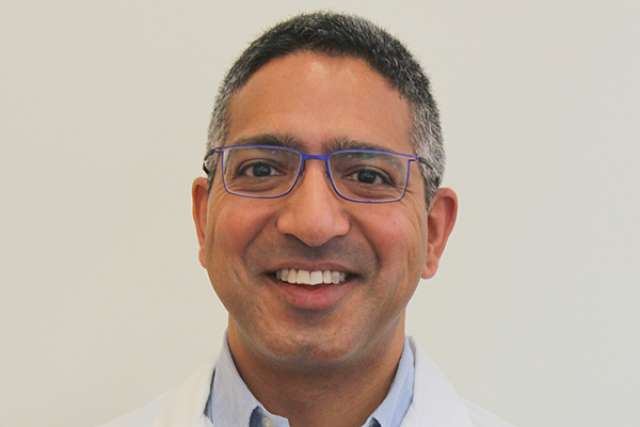
Manish Butte, M.D., Ph.D.
(he/him)
Specialty
Institutional Affiliation
Languages
Education
Fellowships
Degrees
Residency
Board Certifications
Contact Information
Phone
Scientific Interests
Dr. Manish Butte's lab studies the impact of mechanical forces on T-cells. They hypothesize that mechanosensing pathways in T-cells become active in stiff tumors and inhibit the ability of T-cells to enter and kill. Butte's lab has been studying the activity of engineered T-cells in tumors in mice using 2-photon intravital microscopy. They perturb the mechanical environment of tumors using therapeutic agents and modify T-cell mechanosensing pathways.
Highlighted Publications
Thauland TJ, Hu KH, Bruce MA, Butte MJ. Cytoskeletal Adaptivity Regulates T Cell Receptor Signaling. Science Signaling, 2017 Mar 7;10(469). doi: 10.1126/scisignal.aah3737.
Choi J, Fernandez R, Maecker HT, Butte MJ. Systems approach to uncover signaling networks in primary immunodeficiency diseases. J Allergy Clin Immunol. 2017 Apr 13. pii: S0091-6749(17)30586-9. doi: 10.1016/j.jaci.2017.03.025. [Epub ahead of print]
Hu KH, Butte MJ. T cell activation requires force generation. J Cell Biol. 2016 Jun 6;213(5):535-42. doi: 10.1083/jcb.201511053. Epub 2016 May 30.
Wang A, Vijayraghavan K, Solgaard O, Butte MJ. Fast Stiffness Mapping of Cells Using High-Bandwidth Atomic Force Microscopy. ACS Nano. 2016 Jan 26;10(1):257-64. doi: 10.1021/acsnano.5b03959. Epub 2015 Dec 15.
Butte MJ, Keir ME, Phamduy TB, Sharpe AH, Freeman GJ. Programmed death-1 ligand 1 interacts specifically with the B7-1 costimulatory molecule to inhibit T cell responses. Immunity. 2007 Jul;27(1):111-22. Epub 2007 Jul 12.


